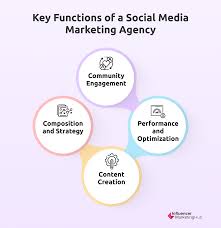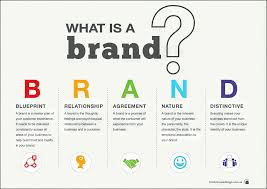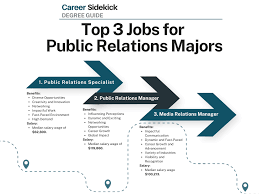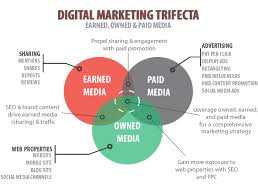Title: The Power of a Communications Agency: Elevating Your Brand’s Message
Introduction:
In today’s fast-paced and interconnected world, effective communication is the key to success for any business. Whether you are a small startup or an established company, conveying your message clearly and engagingly is crucial for building brand awareness, connecting with your target audience, and ultimately driving growth. This is where a communications agency comes into play. In this article, we will explore the invaluable role of a communications agency and how it can elevate your brand’s message to new heights.
Strategic Planning:
A reputable communications agency serves as a strategic partner in crafting and executing your brand’s communication strategy. They work closely with you to understand your business objectives, target audience, and unique selling points. By conducting thorough market research and competitor analysis, they develop tailored strategies that effectively position your brand in the marketplace.
Brand Messaging:
Creating compelling brand messaging is an art that requires careful consideration of language, tone, and positioning. A skilled communications agency possesses the expertise to craft impactful messages that resonate with your audience. They ensure consistency across all communication channels, including website copy, social media content, press releases, and marketing materials. By maintaining a cohesive voice throughout your messaging, they help reinforce your brand identity and build trust with customers.
Media Relations:
Establishing strong relationships with media outlets is vital for gaining valuable exposure for your brand. A communications agency has extensive experience in media relations and knows how to navigate the ever-changing media landscape. They have established connections with journalists and influencers across various industries who can amplify your brand’s reach through earned media coverage. From drafting press releases to organizing media events or interviews, they have the expertise to secure valuable publicity opportunities for your business.
Digital Presence:
In today’s digital age, having a robust online presence is essential for any business. A communications agency understands the power of digital platforms and can help you harness their potential effectively. They develop comprehensive digital strategies that encompass social media management, content creation, search engine optimization (SEO), and online reputation management. By leveraging these tools, they ensure your brand is visible to your target audience and stays ahead of the competition in the online realm.
Crisis Management:
In times of crisis or unforeseen challenges, having a communications agency by your side can be a game-changer. They are well-versed in crisis management and can swiftly respond to mitigate any potential damage to your brand’s reputation. With their expertise in communication strategy, they help navigate sensitive situations, providing guidance on messaging, media responses, and stakeholder communications. Their proactive approach ensures that you maintain control over the narrative during challenging times.
Measurable Results:
One of the significant advantages of partnering with a communications agency is their ability to measure and analyze the impact of their efforts. Through data-driven insights, they assess the effectiveness of different communication strategies and tactics. This allows for continuous improvement and optimization of your brand’s messaging to achieve better results over time.
Conclusion:
A communications agency is an invaluable asset for businesses looking to elevate their brand’s message and maximize their reach. From strategic planning to media relations, digital presence management to crisis communication, they offer a comprehensive range of services tailored to your specific needs. By leveraging their expertise, you can ensure that your brand’s voice is heard loud and clear in today’s competitive market. So why settle for average when you can partner with professionals who excel at delivering exceptional communication results? Invest in a communications agency today and unlock the true potential of your brand’s message.
7 Frequently Asked Questions About Communications Agencies in the UK
- What do marketing communications companies do?
- How do I choose a communications agency?
- What is integrated communication agency?
- What does a communication agency do?
- Why work for a communication agency?
- What do communications agencies do?
- What does a media communications agency do?
What do marketing communications companies do?
Marketing communications companies, also known as marketing agencies or advertising agencies, play a crucial role in helping businesses effectively communicate their messages to their target audience. These companies specialize in various aspects of marketing and communication, providing a wide range of services to support businesses in achieving their marketing objectives. Here are some key functions and services that marketing communications companies typically offer:
- Strategic Planning: Marketing communications companies work closely with businesses to develop comprehensive marketing strategies aligned with their goals and target audience. They conduct market research, analyze competitors, and identify key messaging and positioning strategies to create a solid foundation for effective communication.
- Branding and Identity: These companies help businesses establish a strong brand identity by creating or refining brand elements such as logos, taglines, brand guidelines, and visual assets. They ensure consistency across all communication channels to build recognition and trust among consumers.
- Advertising Campaigns: Marketing communications companies develop creative advertising campaigns that capture attention and drive consumer engagement. This includes creating ad concepts, designing visuals, writing copy, selecting appropriate media channels (such as print, television, radio, online platforms), and managing media buying.
- Digital Marketing: With the increasing importance of digital platforms, marketing communications companies excel in developing digital marketing strategies that encompass various channels such as social media advertising, search engine optimization (SEO), content creation, email marketing, influencer partnerships, and website optimization.
- Public Relations (PR): PR is an integral part of marketing communications. These agencies manage relationships with the media to secure earned media coverage for their clients through press releases, media pitches, interviews, events coordination, crisis management support, reputation management strategies.
- Content Creation: Marketing communications companies create engaging content across different mediums such as blogs/articles, videos/visuals infographics), whitepapers/case studies) to attract and educate the target audience about the client’s products/services.
- Market Research: To ensure effective targeting and messaging strategies, marketing communications companies conduct market research to gain insights into consumer behavior, preferences, and trends. This helps businesses make informed decisions and tailor their communication efforts accordingly.
- Analytics and Reporting: These companies provide data-driven insights by monitoring and analyzing the performance of marketing campaigns. They track key metrics, such as website traffic, conversion rates, social media engagement, and ROI, to evaluate the effectiveness of different strategies and optimize future campaigns.
- Event Management: Marketing communications companies may also offer event planning and management services for product launches, trade shows, conferences, or corporate events. They handle logistics, branding elements, promotional materials, media coverage coordination to ensure successful events that align with the overall marketing strategy.
Overall, marketing communications companies are instrumental in helping businesses effectively communicate their messages to the right audience through various channels. Their expertise in strategic planning, creative execution, digital marketing tactics, PR management ensures that businesses can achieve their marketing goals efficiently and stand out in a competitive market.
How do I choose a communications agency?
Choosing the right communications agency for your business is a crucial decision that can significantly impact your brand’s success. Here are some key factors to consider when selecting a communications agency:
- Expertise and Experience: Look for an agency that has experience in your industry or niche. They should have a track record of successful campaigns and a deep understanding of your target audience. Assess their portfolio and client testimonials to gauge their expertise and ability to deliver results.
- Services Offered: Consider the range of services the agency provides. Do they offer comprehensive communication solutions, including media relations, digital marketing, content creation, crisis management, and more? Assess whether their services align with your specific needs and objectives.
- Strategic Approach: A good communications agency should take a strategic approach to their work. They should be able to demonstrate how they develop unique strategies tailored to each client’s goals and target audience. Inquire about their strategic planning process and how they measure success.
- Reputation and Credibility: Research the agency’s reputation in the industry. Check if they have won any awards or accolades for their work. Look for client reviews or case studies that highlight their professionalism, reliability, and ability to deliver on promises.
- Communication Style: Effective communication is key when partnering with an agency. Assess how well they communicate with you during the initial consultation process. Are they responsive, attentive, and proactive in addressing your concerns? A strong working relationship is built on open communication.
- Budget Considerations: Determine your budget for communication services and discuss it openly with potential agencies during the selection process. Ensure that the agency can provide transparent pricing structures that align with your budgetary constraints without compromising on quality.
- Compatibility and Cultural Fit: It is important to find an agency that understands your company culture, values, and long-term vision. Look for an agency that you feel comfortable collaborating with as a trusted partner.
- Results-Oriented: Inquire about the agency’s approach to measuring and reporting results. A reliable agency should have a system in place to track the success of their communication efforts and provide regular updates on key performance indicators.
- Flexibility and Adaptability: The communications landscape is constantly evolving. Choose an agency that demonstrates agility and adaptability in keeping up with industry trends and technological advancements. They should be able to adjust strategies as needed to stay ahead of the competition.
- Chemistry and Trust: Lastly, trust your instincts and assess the chemistry between your team and the agency. Building a strong working relationship is essential for successful collaboration. Choose an agency that you feel comfortable with, as they will become an extension of your brand.
By considering these factors, you can make an informed decision when selecting a communications agency that aligns with your business goals, values, and communication needs.
What is integrated communication agency?
An integrated communication agency, also known as an integrated marketing communication agency, is a type of agency that offers a comprehensive range of services to help businesses effectively communicate their message and achieve their marketing goals. Unlike traditional advertising or public relations agencies that may focus on specific areas of communication, an integrated communication agency takes a holistic approach by combining various marketing and communication disciplines into a cohesive strategy.
The core principle behind an integrated communication agency is to ensure consistency and synergy across all communication channels. They aim to create seamless and unified messaging that resonates with the target audience, regardless of the medium or platform used. By integrating different aspects of marketing and communication, such as advertising, public relations, digital marketing, social media management, content creation, and more, they provide a comprehensive solution for businesses to effectively reach their audience.
Benefits of working with an integrated communication agency include:
- Consistent Brand Messaging: An integrated approach ensures that your brand’s message is consistent across all channels and touchpoints. This helps in establishing a strong brand identity and building trust among your target audience.
- Efficient Resource Allocation: Instead of working with multiple agencies or freelancers for different aspects of marketing and communication, partnering with an integrated agency allows for streamlined coordination and efficient resource allocation.
- Comprehensive Strategy: Integrated agencies develop comprehensive strategies that align with your business goals. They consider all relevant channels and platforms to deliver a cohesive message that drives results.
- Cross-channel Integration: An integrated approach allows for seamless integration across various channels such as print media, digital platforms, social media networks, events, PR campaigns, etc., ensuring maximum exposure for your brand.
- Data-driven Insights: Integrated agencies leverage data analytics to measure the performance of different communication efforts. This enables them to refine strategies based on real-time insights and optimize future campaigns for better results.
- Cost-effectiveness: Working with an integrated agency can often be more cost-effective than managing multiple agencies or in-house teams for different communication functions. It provides a centralized solution that optimizes resources and reduces overhead costs.
Ultimately, an integrated communication agency aims to create a cohesive and impactful communication strategy that helps businesses build brand awareness, engage their target audience, and drive business growth. By bringing together various marketing and communication disciplines, they offer a comprehensive solution to meet the diverse needs of modern businesses in an ever-evolving digital landscape.
What does a communication agency do?
A communication agency is a professional service provider that specializes in managing and implementing various aspects of communication for businesses and organizations. Their primary goal is to help clients effectively convey their message, build brand awareness, engage with their target audience, and achieve their communication objectives.
Here are some key functions and services that a communication agency typically offers:
- Strategic Communication Planning: Communication agencies work closely with clients to develop comprehensive communication strategies aligned with their business goals. They conduct research, analyze the target audience, identify key messages, and outline the most effective channels to reach the desired audience.
- Brand Messaging and Positioning: Communication agencies help clients craft compelling brand messages that resonate with their target audience. They ensure consistency in tone, language, and positioning across all communication platforms to build a strong brand identity.
- Media Relations: Establishing relationships with media outlets is crucial for gaining media coverage and increasing brand visibility. Communication agencies have expertise in media relations and can help clients secure press coverage through press releases, media pitches, interviews, and media events.
- Content Creation: Creating engaging content is essential for effective communication. Communication agencies develop content strategies and produce high-quality content such as articles, blog posts, social media posts, videos, infographics, and more to engage the target audience.
- Digital Marketing: With the rise of digital platforms, communication agencies provide digital marketing services including social media management, search engine optimization (SEO), email marketing campaigns, online advertising strategies, website development or optimization to enhance online presence.
- Crisis Communication: In times of crisis or reputation management challenges, communication agencies play a crucial role in managing communications effectively. They develop crisis communication plans and provide guidance on messaging during sensitive situations to protect the client’s reputation.
- Event Management: Communication agencies often assist in organizing events such as product launches or press conferences by handling logistics, coordinating media attendance or coverage opportunities while ensuring consistent messaging throughout the event.
- Measurement and Analytics: Communication agencies track and analyze the effectiveness of communication efforts. They use various tools and metrics to measure the impact of campaigns, monitor media coverage, analyze website traffic, social media engagement, and provide insights for continuous improvement.
Overall, a communication agency acts as a strategic partner that helps businesses navigate the complex landscape of communication. They bring expertise, creativity, and industry knowledge to develop effective strategies that enhance brand visibility, reputation, and engagement with the target audience.
Why work for a communication agency?
Working for a communication agency can offer a multitude of benefits and opportunities for professionals in the field. Here are some compelling reasons why individuals choose to work for a communication agency:
- Diverse Clientele: Communication agencies often work with a wide range of clients from various industries. This diversity provides employees with the chance to work on diverse projects, tackle different challenges, and gain exposure to different sectors. It keeps the work exciting, fresh, and intellectually stimulating.
- Skill Development: Communication agencies provide an environment that fosters continuous learning and skill development. Employees have the opportunity to enhance their expertise in areas such as strategic planning, brand messaging, media relations, digital marketing, crisis management, and more. The agency setting exposes individuals to a wide range of projects and clients, allowing them to expand their skill set and stay up-to-date with industry trends.
- Collaborative Environment: Communication agencies are known for their collaborative work culture. Working alongside talented professionals from diverse backgrounds encourages teamwork and fosters creativity. Employees have the opportunity to collaborate on projects with colleagues who bring different perspectives and experiences to the table, leading to innovative ideas and solutions.
- Fast-Paced Environment: Communication agencies thrive in fast-paced environments where deadlines are tight and expectations are high. This dynamic atmosphere can be exhilarating for individuals who thrive under pressure and enjoy tackling challenges head-on. The fast-paced nature of agency work keeps employees engaged, motivated, and constantly learning.
- Networking Opportunities: Working at a communication agency exposes professionals to a vast network of industry contacts including journalists, influencers, clients, and other professionals within the field. Building relationships with these contacts can open doors for future career opportunities or collaborations.
- Professional Growth: Communication agencies offer excellent opportunities for professional growth and advancement. As employees gain experience working on various projects across different industries, they develop valuable skills that can propel their careers forward. Agencies often provide training programs or mentorship opportunities that further nurture talent and support career progression.
- Creative Freedom: Communication agencies value creativity and encourage employees to think outside the box. This creative freedom allows individuals to explore innovative approaches to communication strategies, messaging, and campaigns. It is an environment where fresh ideas are welcomed and creativity is nurtured.
- Impactful Work: Working for a communication agency provides the opportunity to make a significant impact on clients’ businesses and brands. By helping clients effectively communicate their messages, agencies contribute to their success and growth. This sense of accomplishment can be highly rewarding for professionals in the field.
In summary, working for a communication agency offers a stimulating and dynamic work environment, continuous learning opportunities, exposure to diverse projects and clients, networking prospects, room for professional growth, creative freedom, and the chance to make a meaningful impact on clients’ businesses.
What do communications agencies do?
Communications agencies provide a range of services aimed at helping businesses effectively communicate with their target audience, build brand awareness, and achieve their communication goals. Here are some key services that communications agencies typically offer:
- Strategic Planning: Communications agencies work closely with clients to develop comprehensive communication strategies aligned with their business objectives. They conduct research, analyze market trends, and identify target audiences to create tailored plans that guide all communication efforts.
- Brand Messaging: Crafting compelling brand messaging is crucial for connecting with customers. Communications agencies help develop a clear and consistent brand voice across various channels such as websites, social media platforms, marketing materials, and press releases. They ensure that the messaging aligns with the brand’s values and resonates with the intended audience.
- Media Relations: Building relationships with journalists and media outlets is essential for gaining earned media coverage. Communications agencies have established connections and expertise in media relations. They help clients secure media opportunities through press releases, interviews, features, and other forms of media exposure.
- Digital Presence Management: In today’s digital landscape, having a strong online presence is vital for businesses. Communications agencies assist in managing social media accounts, creating engaging content, optimizing websites for search engines (SEO), monitoring online reputation, and implementing digital advertising strategies to increase brand visibility.
- Content Creation: Communications agencies often provide content creation services such as copywriting, blog writing, video production, graphic design, and other creative assets that effectively convey the brand’s message across different platforms.
- Crisis Communication: When faced with a crisis or challenging situation that could potentially harm a company’s reputation, communications agencies step in to manage the situation effectively. They develop crisis communication plans, handle media inquiries or negative publicity swiftly and professionally to protect the brand’s image.
- Measurement and Analysis: Communications agencies use data-driven insights to measure the impact of their efforts accurately. They analyze key performance indicators (KPIs) such as media coverage, social media engagement, website traffic, and customer feedback to assess the effectiveness of communication strategies and make informed adjustments.
- Event Management: Some communications agencies offer event management services, including planning and executing events such as product launches, press conferences, trade shows, and corporate gatherings. They handle logistics, media invitations, messaging, and overall event coordination.
Overall, communications agencies serve as strategic partners for businesses seeking to enhance their communication efforts. They provide expertise in various areas of communication to help clients effectively convey their message, connect with their audience, and achieve their business objectives.
A media communications agency specializes in managing and optimizing a brand’s communication efforts across various media channels. Their primary goal is to help businesses effectively convey their message to the target audience and achieve their communication objectives. Here are some key functions and services provided by a media communications agency:
- Media Planning and Buying: Media communications agencies conduct thorough research and analysis to determine the most suitable media platforms for reaching the target audience. They develop strategic plans that outline when, where, and how to allocate advertising budgets across different media channels such as television, radio, print, online, and social media. They negotiate with media outlets to secure the best rates for advertising placements.
- Public Relations (PR): PR is an essential aspect of media communications. Agencies help businesses build positive relationships with the public, stakeholders, and the media through various strategies such as press releases, media pitches, events management, influencer partnerships, crisis management, reputation management, and more. They ensure consistent messaging that aligns with the brand’s values and objectives.
- Content Creation: Media communications agencies often have in-house teams of content creators who develop engaging content tailored to different media platforms. This includes writing press releases, articles, blog posts, social media posts, website copywriting, video production, graphic design, and other forms of multimedia content. They ensure that all content maintains a consistent brand voice and resonates with the target audience.
- Media Monitoring and Analysis: Agencies track and analyze the performance of communication campaigns across various media channels using advanced analytics tools. They measure key performance indicators (KPIs) such as reach, impressions, engagement rates, conversion rates, sentiment analysis from social listening tools or surveys to evaluate campaign effectiveness. This data-driven approach helps identify areas for improvement and optimize future communication strategies.
- Digital Marketing: With the increasing importance of digital platforms in today’s world, many media communications agencies offer digital marketing services alongside traditional advertising methods. This includes search engine optimization (SEO), social media management, online advertising (such as Google Ads or Facebook Ads), email marketing, website development, and more. They create comprehensive digital strategies to enhance brand visibility, engagement, and conversion rates.
- Media Relations: Media communications agencies have established relationships with journalists, editors, influencers, and media outlets. They leverage these connections to generate media coverage for their clients through press releases, interviews, features, news stories, and guest articles. They act as a liaison between the brand and the media to ensure positive coverage and manage any potential crises or negative publicity.
- Market Research: To develop effective communication strategies, agencies conduct market research to gain insights into the target audience’s behaviors, preferences, trends, and competitors’ activities. This research helps them tailor messaging and choose appropriate media channels that resonate with the intended audience.
Overall, a media communications agency plays a pivotal role in helping businesses navigate the complex world of media communication. By leveraging their expertise in media planning and buying, PR strategies, content creation, digital marketing techniques, media relations management, and data analysis, they help brands effectively reach their target audience and achieve their communication goals.








